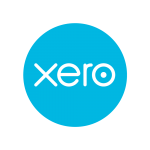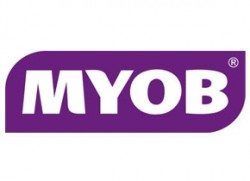Cloud Bookkeeping: XERO or MYOB Essentials : A Small Business Perspective
Changed to a Cloud Bookkeeping Service yet?
Some of our clients have made the move while others are happy with their current system to effectively manage their business needs. Whilst the move to a cloud accounting solution may have been initially for the early adopters, there is no doubt that it is fast becoming mainstream and something you now may wish consider for your business. If you are investigating a cloud bookkeeping and accounting solution, here are some points to consider.
What is Cloud Bookkeeping Software?
This software is hosted on remote servers offsite from your location. Your data is sent into “the cloud” where it is stored and maintained on behalf of your business.
The benefits of cloud bookkeeping are:
- Your data is easily accessible anywhere, anytime and on any device. No matter where you are in the world if you have internet access you can access your business information.
- There is one data file with shared data access. This means that you, your bookkeeper or your accountant can all work on the file at the same time knowing the data is current. There is no need to email or drop off files.
- Hardware needs at your office are reduced as you just need internet access. There is no need to install and maintain software on individual desktop computers.
- Employees can access the same data and the same version of software in remote or branch offices.
- Backups, virus checking and updates of the bookkeeping software are handled by the provider.
- Real time information is used, with daily bank feeds.
- You have clarity of your cashflow with transparency all year round to know exactly where you stand.
Point to carefully consider are:
- Select a well-known supplier of cloud bookkeeping software, one with a good track record of providing the service.
- Find out about the providers’ support service should any problems arise.
- Know where your data will be stored and if it is not in Australia ensure that it is governed by Australian privacy laws.
- Check what internet speed is necessary to work easily and quickly with your data.
- Know how accessible your data is to others – who and why (under what arrangements/authorisations) to ensure that your data is safe and secure.
- What training is required (if any) in order to use the bookkeepers software.
- How easy is it to convert existing data to the online version.
- Find others who are using the product and discuss the service they have experienced.
- Check if the accounting software is compatible and links with other products that you use (e.g. electronic banking, credit card payments, email, Point of Sale, Word, Excel etc)
Xero versus MYOB Essentials Accounting
There are five main cloud bookkeeping software providers in the Australian market. They are MYOB, Xero, Intuit with Quickbooks, Saasu and Reckon, the former Australian distributor for Quickbooks which now has its own cloud-based offering.
As two of the leaders in the market, it is worth exploring some of the similarities and differences between Xero and MYOB before making a decision on which cloud bookkeeping and accounting software solution you should choose to meet the needs of your business.
While Xero is a pure cloud based bookkeeping solution and can be accessed on any computer which has an internet connection anywhere in the world, it is now also available as an App for iPhones, iPads and Android devices. The availability of an App is particularly important when considering the increasing importance of mobile devices in the future. This is highlighted in the “Australian Small Business Mobile Study” of 501 small business owners by Intuit. This study reveals that 48% of small business owners think they will spend more time completing business tasks on their mobile devices in the next year. 88% of small business owners think it will be essential to complete business-related tasks on mobile devices in the future of which business tasks with the the largest predicted uptake being “accepting payments” rising from 13% today to 31% and invoicing increasing from 12% today to 26%.
To significantly speed up the bank reconciliation process, both Xero and MYOB offer live bank feeds. Recurring transactions can be saved and it can be recognised from the bank statement description whether a payment or receipt is for a particular customer or supplier and suggest the invoice or purchase the payment should be allocated to. The bank rules are very easy to use in MYOB Essentials, however they are quite basic while for Xero these are very detailed and allow up to seven rule conditions for matching transactions. This increases the accuracy in finding matching transactions in the live bank feed for Xero.
When comparing supplier payments and invoicing, Xero also allows you to attach scanned documents to the invoice or purchase, giving you a document storage solution in addition to an accounting software solution. Up to 1GB of storage is allowed for in the Starter edition with this increasing to 50GB in the Premium 50 edition.
Xero has a vast range of other cloud based systems (third-party products) that integrate seamlessly with it in order to add functionality. It has a published API which makes it easier to customise and lead to more third-party integration.
The customer support for MYOB is very good. They have online library of support notes, phone support, a community forum and live chat. There is also dedicated support for MYOB partners. Xero does not have live support. It has a community forum, but it does not have a phone support line. There is an online self-help Q&A site and 24/7 email support.
MYOB Essentials Accounting is priced at $29 per month, which includes unlimited transactions, bank feeds, unlimited customer invoicing, supplier bills and unlimited users. You can upgrade to unlimited payroll which increases the subscription $40 per month, commencing 1 October 2014.
Xero’s Starter edition costs $25 per month and includes bank feeds, unlimited users, payroll for one employee, 20 bank transactions per month, five customer invoices per month and five supplier bills per month. Xero’s Standard edition, which costs $50 per month, adds unlimited bank transactions, invoices and bills and payroll for up to five employees. You have to purchase Xero’s Premium packages for more employees – Premium10 ($60 per month) for up to 10 employees, Premium 20 ($70 per month) for up to 20 employees and Premium 50 ($80 per month) for up to 50 employees.
Irena’s Bookkeeping is an excellent Bookkeeping solution for your business. If you’re in need of a Bookkeeper, get in contact.
Consider your options and select your cloud bookkeeping and accounting provider carefully. If you need assistance with your bookkeeping and selecting a solution, give Irenas’s Bookkeeping a call on (02) 9011 5337

